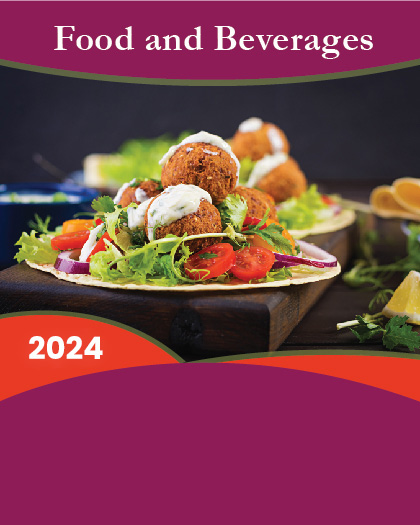
Global Hybrid Seeds Market is valued at approximately USD 24.14 billion in 2022 and is anticipated to grow with a healthy growth rate of more than 11.0% during the forecast period 2024-2032. Hybrid seeds, also known as F1 seeds, are produced by cross-pollinating two different varieties of plant species. This cross-pollination is done deliberately to create offspring with specific desired traits from each parent. These traits can include higher yields, better resistance to diseases and pests, improved tolerance to environmental conditions, or enhanced nutritional content. Hybrid seeds are often used in agriculture to improve crop productivity and quality. However, it's important to note that hybrid seeds are different from Genetically Modified (GM) Seeds. While both involve genetic manipulation, hybrid seeds result from natural breeding processes, whereas GM seeds have had their DNA modified in a laboratory setting.
Hybrid seeds have grown in favour among farmers globally over the last decade due to their capacity to harvest more quickly than traditional or Open-Pollinated Variety (OPV) seeds. Farmers can harvest their produce early and shorten the agricultural cycle by using hybrid seeds, as they typically exhibit faster rates of growth and maturity. Farmers can increase the efficiency of their farming operations and seize market possibilities by accelerating the time to market for their products.. The weather instability brought on by climate change poses serious problems to traditional crop kinds, which is why hybrid seeds with adaptable features are in more demand.. To reduce the hazards associated with erratic weather patterns and maintain crop stability and production consistency, farmers look for hybrids that are heat- and drought-resistant. Farmers who want to protect their livelihoods from disruptions caused by climate change increasingly choose hybrid seeds due to their versatility and dependability in the face of increasingly frequent extreme weather occurrences. The strain on agricultural output increases as the world's population continues to rise. The World Bank's 2022 predictions indicate that by 2050, there would be 9.7 billion people on the planet, increasing the need to increase food production. Less than 2% of the population is employed in agriculture, which makes the situation more difficult. Due to their remarkable ability to increase crop yields, hybrid seeds are essential in tackling this problem. Hybrid seeds have stronger genetics and improved features that can lead to higher yields. In a world with finite agricultural resources, this enhanced productivity is crucial for guaranteeing food security, fulfilling the world's expanding food demand amid demographic shifts, and reducing the dangers associated with food scarcity. However, the high cost of Hybrid Seeds stifles market growth throughout the forecast period of 2024-2032.
The key regions considered for the Global Hybrid Seeds Market study includes Asia Pacific, North America, Europe, Latin America, and Middle East & Africa. In 2022, North America led the Hybrid sSeeds Market. Crop rotation, integrated pest control, and conservation tillage are examples of sustainable agriculture techniques that are becoming more and more popular in North America. Demand for hybrid seeds are also anticipated to be positively impacted by the region's embrace of precision agriculture techniques, which include the use of cutting-edge technologies such as GPS, drones, and data analytics. The market for hybrid seeds in Asia Pacific is anticipated to expand at the quickest rate between 2023 and 2030. Population increases and the desire for larger yields and better-quality produce are driving the market. The region, which is home to major agricultural producers such as China and India, experiences an annual spike in demand for seasonal fruits and vegetables, which increases the need for hybrid seeds to effectively meet agricultural needs.
Major market player included in this report are:
Bayer CropScience
Corteva Agriscience
Syngenta
Groupe Limagrain
KWS SAAT SE & Co.
Sakata seed Corporation
DLF Seeds A/S
Longping High-tech
Euralis Semences
Advanta
Recent Developments in the Market:
In January 2021, Bayer launched four new hybrid vegetable seeds. Bayer is focusing on next-generation, cutting-edge Seminis hybrids that can adjust to changing consumer tastes and preferences.
In April 2021, RACT and Bayer worked together to produce hybrid wheat cultivars. Roughly 20% of the protein consumed worldwide comes from wheat. ensuring wheat harvests by utilising hybrid wheat farming techniques that contribute to crop robustness and yield increases
Global Hybrid Seeds Market Report Scope:
Historical Data - 2020 - 2021
Base Year for Estimation - 2022
Forecast period - 2024-2032
Report Coverage - Revenue forecast, Company Ranking, Competitive Landscape, Growth factors, and Trends
Segments Covered - Crop Type, Treatment, Application, Distribution Channel, Region
Regional Scope - North America; Europe; Asia Pacific; Latin America; Middle East & Africa
Customization Scope - Free report customization (equivalent up to 8 analyst's working hours) with purchase. Addition or alteration to country, regional & segment scope*
The objective of the study is to define market sizes of different segments & countries in recent years and to forecast the values to the coming years. The report is designed to incorporate both qualitative and quantitative aspects of the industry within countries involved in the study.
The report also caters detailed information about the crucial aspects such as driving factors & challenges which will define the future growth of the market. Additionally, it also incorporates potential opportunities in micro markets for stakeholders to invest along with the detailed analysis of competitive landscape and product offerings of key players. The detailed segments and sub-segment of the market are explained below:
By Crop Type:
Cereals & Grains
Oilseeds & Pulses
Fruits & Vegetables
Others
By Treatment:
Treated
Untreated
By Application:
Commercial
Residential
By Distribution Channel:
Direct to Farmers
Cooperatives
Mediators
By Region:
North America
U.S.
Canada
Europe
UK
Germany
France
Spain
Italy
ROE
Asia Pacific
China
India
Japan
Australia
South Korea
RoAPAC
Latin America
Brazil
Mexico
Middle East & Africa
Saudi Arabia
South Africa
Rest of Middle East & Africa
























